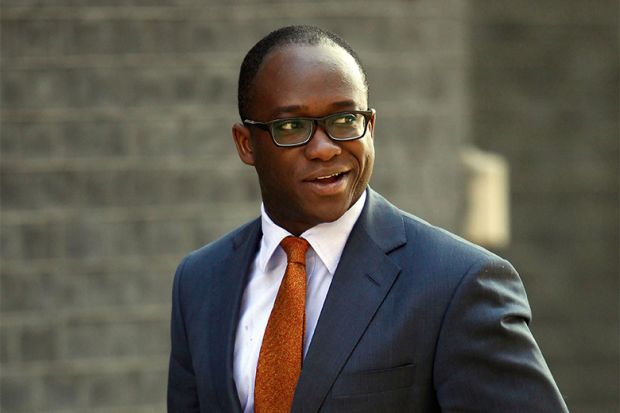The Westminster government is “committed to calling out [a] tendency towards a ‘monoculture’ on campus” and claims that some people feel “unsafe or threatened if they speak out” in universities.
The government made the comments in its response to the Joint Committee on Human Rights’ report into freedom of speech in universities.
The original report by MPs and peers on the joint committee, published in March, said: “Any inhibition on lawful free speech is serious, and there have been such incursions, but we did not find the wholesale censorship of debate in universities which media coverage has suggested.”
But the government adopts a different tone in its response. And some of the government’s statements – about expecting disciplinary action from universities if protests “shut down” free speech – are likely to raise concerns about potential impact on institutional autonomy. Sam Gyimah, the universities minister, has consistently seized on the issue of free speech in universities, a popular topic for newspapers such as the Daily Mail and the Daily Telegraph.
The government response says that “what the inquiry did not consider is the culture in our universities. We are concerned that there may be a wider issue here. The JCHR’s inquiry and the subsequent public discourse has begun to expose a deeply concerning tendency amongst some within universities to reject any viewpoints which do not conform to what is ‘fashionable’ or ‘socially acceptable’.
“This can lead to those who wish to express dissenting views – perfectly lawfully – being deemed unwelcome on campus, and at worst feeling unsafe or threatened if they speak out. This risks the foundation of what universities are about: the free and frank exchange of ideas.”
The response continues: “Government is committed to calling out this tendency towards a ‘monoculture’ on campus, and we urge universities to counter censorious attitudes and groupthink wherever they arise.”
The government then adds: “We appreciate that this is an issue that cannot be addressed by guidance, or indeed by government.”
The government had already announced plans to simplify existing guidance around free speech for universities and students’ unions after Mr Gyimah hosted a meeting with organisations including Universities UK, the National Union of Students and the Equalities and Human Rights Commission. That new guidance will be published in the autumn, the government says.
The government response says that the guidance “will set out core principles and expectations, and is intended to make it significantly more difficult to hide behind processes and procedures in order to stifle free speech.
“We of course support the rights of students to protest legitimately. Peaceful protest itself is a legitimate form of freedom of expression. However, we expect institutions to take appropriate disciplinary measures in cases of violent protest or protest that shuts down free speech.”
The government response repeats its existing statements that the Office for Students, England’s new regulator, will “work with the sector to make sure universities are upholding free speech”.
The OfS says in its response to the JCHR report that it is “encouraged by the committee’s work in establishing the scale and nature of any threats to free speech on campus and their finding that ‘overall there is support for the principle of freedom of speech’ across the sector and that there is no wholesale censorship of debate in universities”. But the regulator adds that it is “concerned by the evidence presented which suggests that there are disincentives for students to put on events which discuss topics or include speakers that other groups may want to contest”.
“The OfS will stand for the widest possible definition of freedom of speech: namely, anything within the law,” it says.
The OfS also rejects the committee’s suggestion that the government should consider whether the regulator could take over regulation of students’ unions from the Charity Commission, saying that it “does not have the legal powers to regulate student unions”.
A recent YouGov survey did not find “any evidence that students are more hostile to free speech than the general population” of the UK.
Register to continue
Why register?
- Registration is free and only takes a moment
- Once registered, you can read 3 articles a month
- Sign up for our newsletter
Subscribe
Or subscribe for unlimited access to:
- Unlimited access to news, views, insights & reviews
- Digital editions
- Digital access to THE’s university and college rankings analysis
Already registered or a current subscriber? Login







